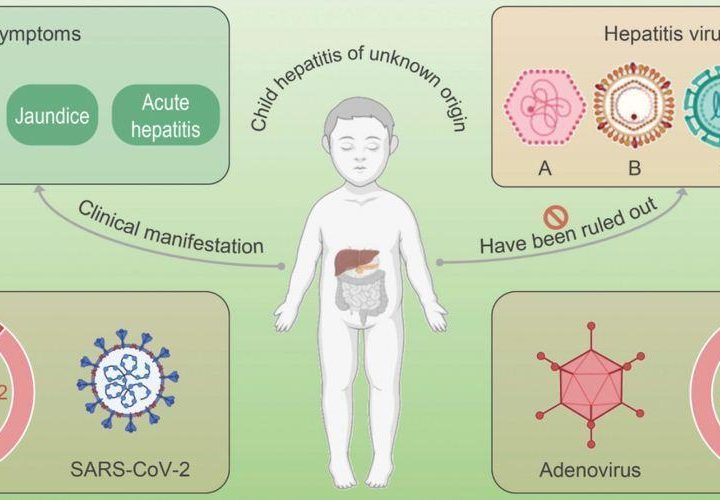How Many Types of COVID-19 Tests Are There in 2022?
COVID-19 diagnostic testing plays an important role in not only detecting the virus but also in controlling the pandemic. There are different types of COVID-19 tests available in 2022 which can detect SARS-CoV-2 in both symptomatic and asymptomatic people. This article features information about different types of COVID-19 tests, how they work, and what they have in common. Keep reading till the end to find more information.

A Brief Overview of COVID-19 Diagnostic Tests
COVID-19 diagnostic tests can detect if you’re currently infected with the COVID-19 virus. Different types of COVID-19 tests can usually identify the virus as well as the antibodies that form after getting infected or vaccinated. There are three main types of COVID-19 tests: antigen tests, antibody tests, and molecular tests (highly accurate).
What do COVID-19 Diagnostic Tests Have in Common?
The following are some similarities between molecular and antigen tests:
- With both types of tests, you’ll get the report with positive as well as a negative result.
- Both require sample collection from saliva, nasal swab, or throat.
- Rapid point-of-care options are available for both tests.
- Both test types only detect the virus.
COVID-19 Diagnostic Test Note On Variants
The detection gene region of the kit is used to determine whether the new variant can be detected. The ability of the original kit to be identified and verified through bioinformatics analysis is crucial. If it can be detected and validated using bioinformatics methods, there’s no need to change the kit. If the bioinformatics methods fail, the COVID-19 diagnostic test kit need to be adjusted or redesigned.
What Are Different Types of COVID-19 Tests?
Here is an overview of three main types of COVID-19 tests:
1. Molecular Tests:
- What do they do? These tests detect ribonucleic acid of the coronavirus even in tiny amounts.
- Specimen type:Saliva, nasal, or throat swabs
- Test results in:a few hours, or 1-3 days.
Molecular tests can be categorized into:
(i) PCR Test: These types of tests are highly sensitive and accurate in detecting the virus and are performed by specialized lab workers. Results may take a few hours or 1-3 days.
(ii) Rapid Point-of-Care Tests: These types of tests can provide results within a few minutes.
2. Antigen Tests:
- What do they do? These tests are known as “rapid” tests and are fast, efficient, and cost-efficient. The tests identify spike proteins present in the virus. These tests diagnose the current infection [2].
- Specimen type:nasal or nasopharyngeal swabs
- Test results in: 10-30 minutes
3. Antibody Tests:
- What do they do? Also referred to as serological tests. These tests identify antibodies in the blood that are produced by the immune system in response to the COVID-19 virus. These tests only diagnose a past infection, not a current infection [3].
- Specimen Type:Blood
- Test results in: Same day, sometimes 1-3 days.
The Challenge for COVID-19 Testing
During the pandemic, there has been a short supply of important components required for both molecular and antigen tests: viral transport media, nasal swabs, and vials. These issues with the supply chain have made COVID-19 testing quite challenging, which needs to be addressed for infection prevention.
The Future of COVID-19 Testing
- Pooled Testing– Since PCR tests are super-sensitive, pooled testing in the future can help “batch” and “test” groups of samples instead of individual samples.
- Innovative Testing– Scientists have been working on introducing innovative testing, such as breath-based tests, for those who have to get tests more frequently.
Conclusion
If you have been looking for any diagnostic products for detecting the COVID-19 virus, Sansure can facilitate you with PCR diagnostic kit as well as a Rapid Antigen Test kit so that you can take preventive measures to prevent the spread of infections. Want to know more about the diagnostic products? Visit our website to ensure optimal health care.
References:
1. Yüce M, Filiztekin E, Özkaya KG. COVID-19 diagnosis —A review of current methods. Biosens Bioelectron 2021;172. https://doi.org/10.1016/j.bios.2020.112752.
2. Xu M, Wang D, Wang H, Zhang X, Liang T, Dai J, et al. COVID-19 diagnostic testing: Technology perspective. Clin Transl Med 2020;10:e158. https://doi.org/10.1002/ctm2.158.
3. Peeling RW, Wedderburn CJ, Garcia PJ, Boeras D, Fongwen N, Nkengasong J, et al. Serology testing in the COVID-19 pandemic response. Lancet Infect Dis 2020;20:e245–9. https://doi.org/10.1016/S1473-3099(20)30517-X.
Note: The picture comes from the Internet. If there is any infringement, please contact the author to delete it.
Disclaimer: All the publications on this website, where the source is indicated, are copyrighted by the original source and do not represent the position of this website.





